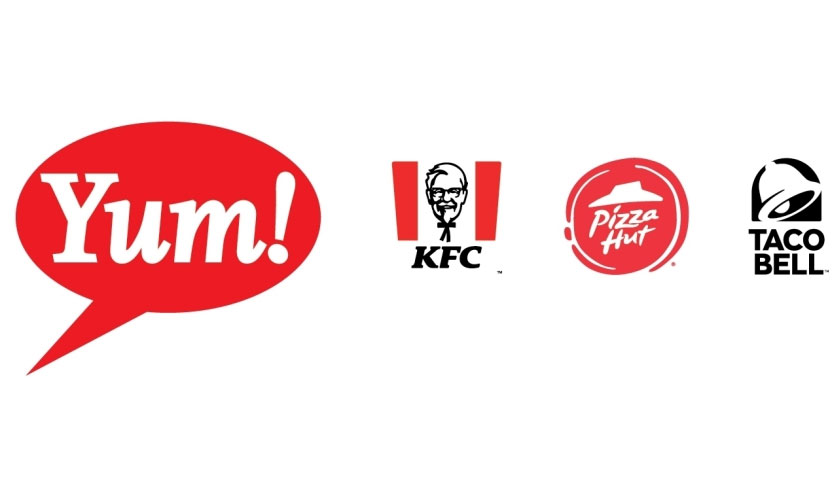Yum! Brands, parent company of KFC, Pizza Hut, Taco Bell and The Habit Burger Grill restaurants, today announced it will decrease its greenhouse gas (GHG) emissions 46% by 2030 in partnership with its franchisees, suppliers and producers as part of its broader strategy to address climate change. Additionally, Yum! pledged to achieve net-zero emissions by 2050. The science-based targets (SBTs) are consistent with reductions required to keep warming to 1.5ºC and have been approved by the Science Based Targets initiative.
“Climate change is one of the top priorities of our Recipe for Good strategy, and we’re investing significantly in sustainable growth to address this issue by working closely with our brands, franchisees and suppliers,” said David Gibbs, Yum! Brands CEO. “We believe in the collective power of Yum! and our brands to make a positive impact, and that holds true when it comes to creating a healthier future for our customers, communities and the environment.”
Yum!’s climate change strategy will focus primarily on emission reductions at its more than 50,000 corporate and franchise restaurants and throughout its supply chain. By 2030, Yum! will cut GHG emissions generated by its corporate restaurants and offices, defined as Scope 1 and 2, 46% below 2019 levels. Working alongside franchisees, suppliers and producers, defined as Scope 3 or its value chain, Yum! will also reduce emissions 46% below 2019 levels during that same timeframe on a per-restaurant basis for franchisees and a per-metric ton basis for beef, poultry, dairy and packaging.
“Building resilient and trusted brands is at the core of Yum!’s citizenship and sustainability strategy, and this includes the work we do around the sustainable stewardship of our planet,” said Jerilan Greene, Yum! global chief communications and public affairs officer and chairman and CEO of the Yum! Foundation. “We have an opportunity to help advance the global climate agenda, and we’re proud to play a role in shaping the path ahead.”
Yum! and its brands are already taking action to make progress on its climate journey, with efforts that include:
- Investing in Green Buildings – KFC continues to invest in its green building strategy and is piloting multiple energy optimization systems across its markets that it will look to scale, including in Malaysia, South Africa and the U.K. The tests are seeing promising results, including 18% overall energy savings in Malaysia and projected savings of more than 5.4 million kWh over five years in the U.K.
- Accelerating Renewable Energy – Yum! will move 1,000 restaurants around the world to renewable energy by the end of 2021, the equivalent of eliminating emissions from 38,000 vehicles. This new commitment builds on existing research and pilot programs conducted in recent years to move more restaurants to renewable energy in markets like KFC Australia. Additionally, Yum! moved its corporate offices in the U.S. to 100% renewable energy in 2020.
- Collaborating with Climate Forward Partners – In early 2021, Yum! joined the Renewable Energy Buyers Alliance (REBA), an alliance of large energy buyers, energy providers and service providers that have joined together to accelerate the transition to a zero-carbon energy future.
“Our new climate commitments set Yum! on an accelerated path when it comes to reducing our carbon footprint and bringing forward sustainable solutions to address climate change for our global system and the broader restaurant industry,” said Jon Hixson, Yum! global chief sustainability officer and vice president of government affairs. “Our primary focus on this journey is to find innovative and cost-effective measures for restaurants and the supply chain that enable sustainability goals.”
Yum!’s new goals and expanded work build on the progress it has made over the past 15 years when it comes to energy reduction and are part of its broader citizenship and sustainability strategy called its Recipe for Good. Yum! set its first energy conservation goal in 2006, and since 2017 it has reduced its GHG emissions an estimated 18% on a per-restaurant average. Sustainable restaurant development has also been a key element of Yum!’s sustainability strategy, building its first Leadership in Energy and Environmental Design (LEED)-certified green restaurant in 2009 and totaling 45 LEED-certified green restaurants globally to date. Key learnings and best practices from these restaurants have been implemented in thousands of locations around the world.
Through regular reporting, Yum! will continue to share its progress and show transparency around climate and energy practices. In addition to publishing annual updates in its Recipe for Good Report, Yum! has participated in comprehensive voluntary disclosure through CDP Climate Change since 2010, most recently scoring an A- on its 2020 submission.
For more information about Yum! Brands’ sustainability strategy, visit www.yum.com/citizenship.


